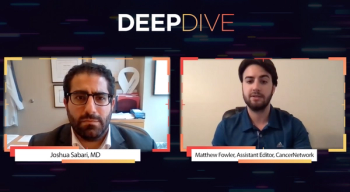
Joshua Sabari, MD, discussed the approval of amivantiamab as therapy for patients with non–small cell lung cancer harboring EGFR exon 20 insertion mutations.

Your AI-Trained Oncology Knowledge Connection!


Joshua Sabari, MD, discussed the approval of amivantiamab as therapy for patients with non–small cell lung cancer harboring EGFR exon 20 insertion mutations.
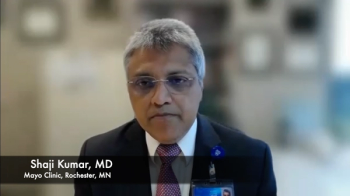
At EHA 2021, Shaji Kumar, MD, reflects on the significance of 5-year data from the MAIA study of daratumumab plus lenalidomide/dexamethasone in patients with newly diagnosed multiple myeloma.

During a discussion at 2021 ASCO, Neal D. Shore, MD, said he was most excited to see data from the phase 3 VISION trial of lutetium-177-PSMA-617 in metastatic castration-resistant prostate cancer.
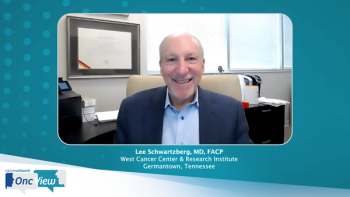
An overview of predictive and prognostic biomarkers used by breast oncologists to aid in adjuvant treatment decisions for HR-positive disease, as outlined by the NCCN guidelines.
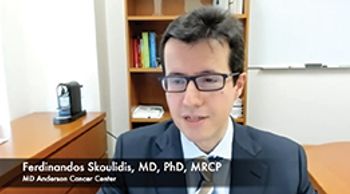
Ferdinandos Skoulidis, MD, PhD, MRCP, details what he was most excited to learn about at 2021 ASCO.

The rationale for treating patients with early stage HR-positive breast cancer with extended adjuvant therapy based on lessons learned through clinical trial evidence and real-world practice.

Kathleen Moore, MD, discusses findings compiled from 3 clinical trials of niraparib in patients with ovarian cancer.

Paolo Ghia, MD, PhD, discussed data from the CAPTIVATE trial of ibrutinib/venetoclax in the frontline setting for chronic lymphocytic leukemia.

At the 2021 American Society of Clinical Oncology Annual Meeting, CancerNetwork® spoke with Tanios S. Bekaii-Saab, MD, about genomic drivers in cholangiocarcinoma.
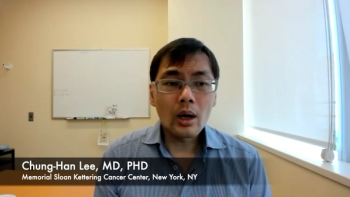
At ASCO 2021, Chung-Han Lee, MD, PhD, discussed an ongoing trial looking at pembrolizumab plus lenvatinib as frontline therapy for non–clear cell renal cell carcinoma.
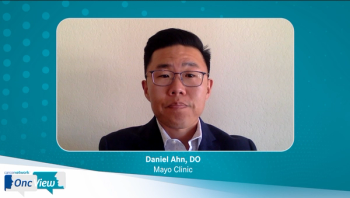
Dr. Daniel Ahn discusses the implications of postoperative ctDNA testing for decision-making in early stage CRC.
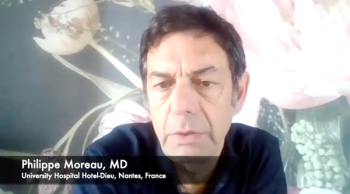
Moreau highlighted important updates in the field of multiple myeloma, including the CARTITUDE-1 trial, which yielded promising results with ciltacabtagene autoleucel and read out at the 2021 ASCO Annual Meeting.

Shaji Kumar, MD, talks about 5-year follow-up data regarding the use of daratumumab, lenalidomide, and dexamethasone in patients with multiple myeloma who are not eligible for transplant.
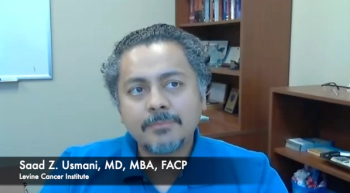
Usmani highlighted the FORTE study as one of the trials investigating the high-risk cohort of patients.

CancerNetwork® sat down with Robert A. Figlin, MD, at the 2021 ASCO Annual Meeting to discuss the results of the KEYNOTE-564 trial with adjuvant pembrolizumab in patients with resected clear cell renal cell carcinoma.
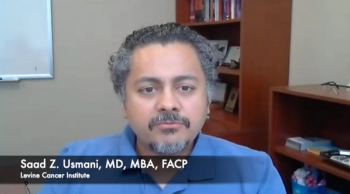
Usmani discussed the common adverse events observed from CARTITUDE-1, including hematologic events and cytokine release syndrome.
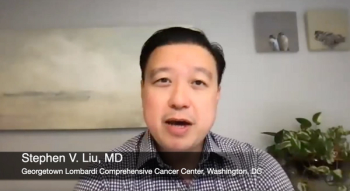
At the 2021 ASCO Annual Meeting, Stephen Liu, MD, discussed the important of findings from the ARROW trial of pralsetinib in patients with RET-altered non–small cell lung cancer.

During the 2021 ASCO Annual Meeting, Suresh S. Ramalingam, MD, looked forward to how trials regarding adjuvant therapy for early-stage non–small cell lung cancer are poised to change the treatment paradigm in this setting.

Neal D. Shore, MD, FACS, discusses the importance of multidisciplinary care for patients with advanced prostate cancer.

Petros Grivas, MD, PhD, regarding updates in genitourinary oncology that were read out at the meeting.
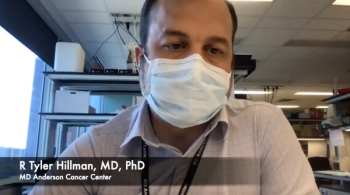
An expert emphasizes how a big team is needed to properly employ the different therapeutic modalities needed to treat patients with ovarian granulosa cell tumors.

Petros Grivas, MD, PhD, discusses the impact of avelumab on patients with advanced urothelial carcinoma in the first-line maintenance setting.
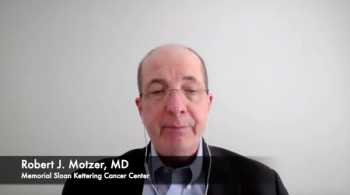
Motzer discussed time to deterioration end points for patients with advanced renal cell carcinoma treated with pembrolizumab and lenvatinib in the first-line setting.
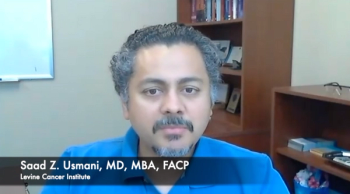
Usmani noted the strong overall response and stringent complete response rates observed with ciltacabtagene autoleucel for multiple myeloma at a median follow-up of 18 months.

Agha detailed updated findings from CARTITUDE-2 investigating cilta-cel for previously treated patients with multiple myeloma.
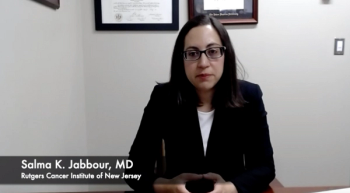
Jabbour detailed the importance of managing care in a multidisciplinary setting for patients enrolled in the KEYNOTE-799 trial with stage III NSCLC.
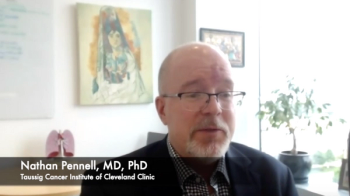
Among other things, Pennell focused on data regarding atezolizumab as adjuvant therapy to improve disease-free survival for patients with stage II/III resected non–small cell lung cancer.
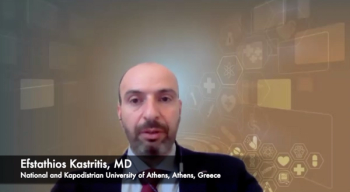
The expert discussed key details from the phase 3 ANDROMEDA trial presented at the 2021 ASCO Annual Meeting.

CancerNetwork® sat down with Ola Landgren, MD, PhD, at the 2021 EHA Congress to talk about his presentation on first-line standard of care for multiple myeloma.

CancerNetwork® sat down with Robert A. Figlin, MD, at the 2021 ASCO Annual Meeting to discuss results of the CANTATA trial of cabozantinib with or without telaglenastat.